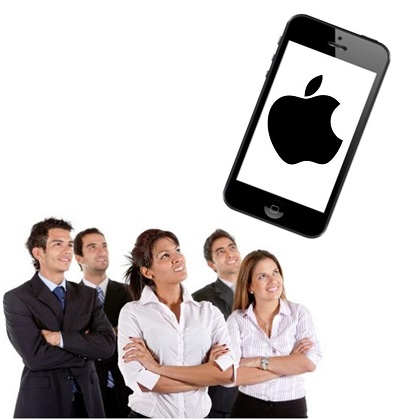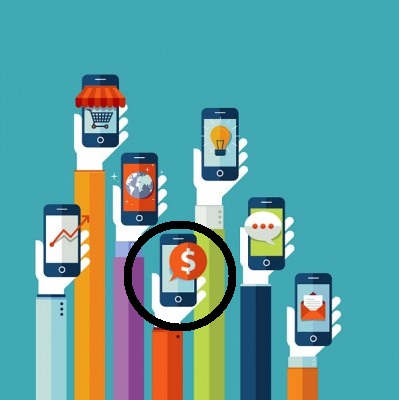Leaked training material helps shed light on Apple Pay features
Apple has begun training its retail employees on the various aspects of its new mobile payment service. The company recently unveiled Apple Pay, which represents its first step into the mobile payments space. The service has yet to officially launch, but it has already received strong praise from businesses and consumers alike. Training material acquired by 9to5Mac sheds some light on some of the features of Apple Pay and shows off features of the service that have not yet been revealed officially.
Apple Pay is designed to work with Passbook
According to the training material, Apple Pay can be set up through the Passbook application. Passbook is Apple’s version of a digital wallet, capable of storing a wide range of virtual information, including special deals offered by retailers and financial details. The service can also be set up through the initial iOS 8 startup process for new iOS devices. As many as eight credit and debit cards can be associated with Apple Pay at any given time and these cards can be linked to Apple Pay through a user’s iTunes account.
NFC technology will control mobile transactions made through Apple Pay
 Apple Pay will be using NFC technology in order to facilitate mobile payments. This technology has comprised the backbone of the mobile commerce space for some time, but Apple had considered it dangerous in the past. Over the past few years, Apple has been taking a slow approach to the mobile payment space, citing security concerns as the reason for its cautious approach. Apple may have found a way to make NFC technology more secure using biometric technology.
Apple Pay will be using NFC technology in order to facilitate mobile payments. This technology has comprised the backbone of the mobile commerce space for some time, but Apple had considered it dangerous in the past. Over the past few years, Apple has been taking a slow approach to the mobile payment space, citing security concerns as the reason for its cautious approach. Apple may have found a way to make NFC technology more secure using biometric technology.
Apple Pay set to launch October 18
According to a leaked memo from one of Apple’s launch partners for Apple Pay, the new mobile payment service is set to see an official launch on October 18. The service will be available for the new iPhone 6 and iPhone 6 Plus devices, as well as Apple’s forthcoming wearable devices that is expected to be launched at some point in early 2015.
Japanese app developer is beginning to expand its services into mobile commerce
Developers of mobile messaging applications are beginning to push into the mobile commerce space. These apps have won popularity for allowing people to message one another for free, but soon people may be using the apps to pay for goods and services and money transfers. Line is the latest app developer to show interest in the mobile payments space and the company is beginning to develop its own payment platform.
Company has major plans for the future after delaying its initial public offering
Line had plans to launch an initial public offer this year, but these plans have been delayed due to the company’s interests in expanding its services. The Japanese company has plans to develop a ride-share application that is similar to Uber, allowing people to purchase rides from private drivers that are associated with the company. Line is also developing an in-door map service and a food delivery service. The company is also branching into the online music streaming sector, offering mobile consumers a way to listen to music through an app.
Line Pay will allow users to pay for goods and services and transfer money to friends and family
 The company is showing particular interest in mobile payments, however, due to the massive revenue potential that the field of digital commerce represents. The Line Pay app, as it is called, will allow users to make payments at convenience stores by linking the app to their bank accounts or credit cards. The app can also be used for money transfers to friends and family. It will also allow users to split restaurant bills easily.
The company is showing particular interest in mobile payments, however, due to the massive revenue potential that the field of digital commerce represents. The Line Pay app, as it is called, will allow users to make payments at convenience stores by linking the app to their bank accounts or credit cards. The app can also be used for money transfers to friends and family. It will also allow users to split restaurant bills easily.
Line will face strong competition in the mobile commerce space
Line will face major competition in the mobile commerce space. The market is currently crowded with a vast number of payment startups that are looking to take advantage of the growing interest consumers have in mobile shopping and payments. Companies like Tencent and Alibaba currently hold a commanding presence in the Asian mobile commerce space, and Line will have to battle these two companies for the favor of consumers.
 Apple Pay will be using NFC technology in order to facilitate mobile payments. This technology has comprised the backbone of the mobile commerce space for some time, but Apple had considered it dangerous in the past. Over the past few years, Apple has been taking a slow approach to the mobile payment space, citing security concerns as the reason for its cautious approach. Apple may have found a way to make NFC technology more secure using biometric technology.
Apple Pay will be using NFC technology in order to facilitate mobile payments. This technology has comprised the backbone of the mobile commerce space for some time, but Apple had considered it dangerous in the past. Over the past few years, Apple has been taking a slow approach to the mobile payment space, citing security concerns as the reason for its cautious approach. Apple may have found a way to make NFC technology more secure using biometric technology.
 The company is showing particular interest in
The company is showing particular interest in 